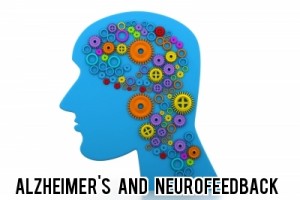Everyone knows the feelings of tossing and turning at night, not being able to sleep, but what happens when this frustrating experience repeats every night? Getting through an average day becomes nearly impossible due to an extreme increase in stress from not getting the proper rest a person needs. Increased irritability and overall sleepiness throughout the day also trouble a person who has not been able to sleep well. Work and/or school become even more challenging because the ability to focus is so heavily dependent on a good night’s rest. Insomnia describes a sleep disorder where people either have trouble falling asleep or trouble staying asleep throughout the night, leaving people exhausted upon waking and often throughout the rest of the day.
Recent studies have estimated Alzheimer's disease to be the third leading cause of death among the elderly, just behind cancer and heart disease, affecting more than 5 million Americans today. Alzheimer's disease is a progressive disorder of the brain that compromises memory and cognitive functioning. Degenerative changes occur in the brain, making every day activities more and more challenging until the person becomes unable to care for themself. Additionally, Alzheimer's is the leading cause of dementia in the elderly population, accounting for 60%-70% of dementia cases, which results in further loss of cognitive functioning. Even the easiest, most commonly performed tasks in a person's life become impossible.
ADHD diagnoses are on the rise for America’s youth with an estimated 6.4 million children between the ages of 4 and 17 already diagnosed. Two-thirds of the children diagnosed are placed on stimulant prescription medication to help correct their behaviors. However, about 50% of people who have ADHD also have concurrent diagnoses of additional psychiatric conditions with anxiety disorders being among the most common. Furthermore, one fourth of children who have been diagnosed with anxiety disorders also have ADHD. In fact, many studies have suggested that ADHD occurring with anxiety may potentially deserve its own sub-classification under the ADHD umbrella. Although the cause for both conditions continues to be widely debated, professionals suspect a combination of genetics and environment to be responsible for the onset of these mental conditions.
In an average life, experiencing stress in various situations is to be expected. It would be impossible to avoid all feelings of nervousness due to discomfort and worry. However, there is a vast difference between feeling occasional anxiety and constantly living in a state of uneasiness and fear. Various anxiety disorders exist, resulting from both inherited traits, life experience, and trauma that has occurred in a person’s life. Anxiety is also attributed to deregulation of certain neurotransmitters in the brain. Social Anxiety Disorder (SAD), also known as social phobia, describes a condition in which a person feels excessively self-conscious in social situations and fears negative judgment.
Experiencing stress in daily life has become the norm for the average American. Read our post 5 Sneaky Symptoms of Stress. Between balancing work, providing for a family, attending school, and various other responsibilities, anxiety and worry rapidly build. People are constantly in search of stress relief, which can come in healthy forms, such as yoga, meditation, journaling, etc. However, many people turn to food when feeling overwhelmed with stress, which only contributes to the ever-growing obesity epidemic in the United States. How easy it is to relate to someone reaching for a chocolate bar after a tough day at work or going through the drive-thru after being taunted by countless ads on the drive home on a typical stressful day. Why is it that people feel the need to reach for comfort foods when the reality is that stress eating is ultimately bad for your health due to excessive weight gain?









